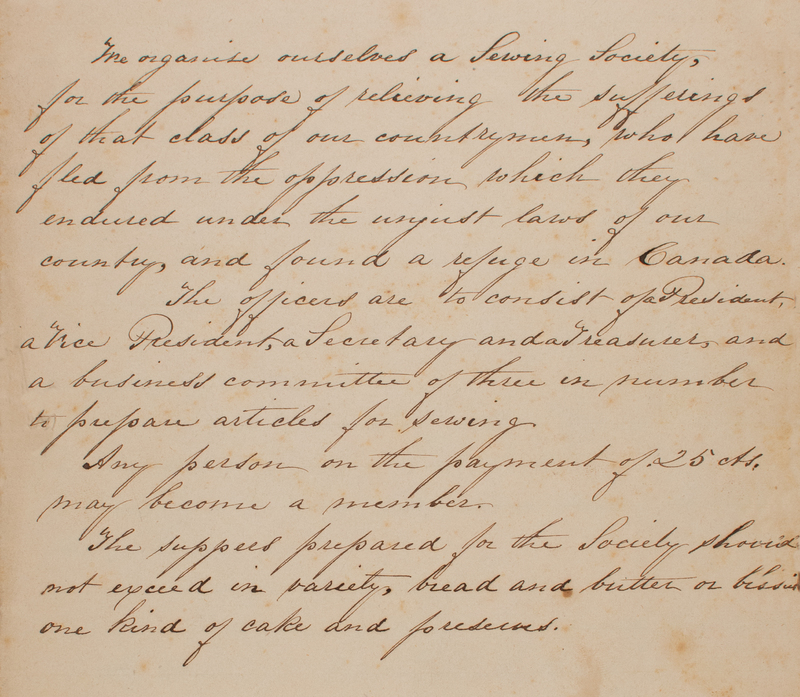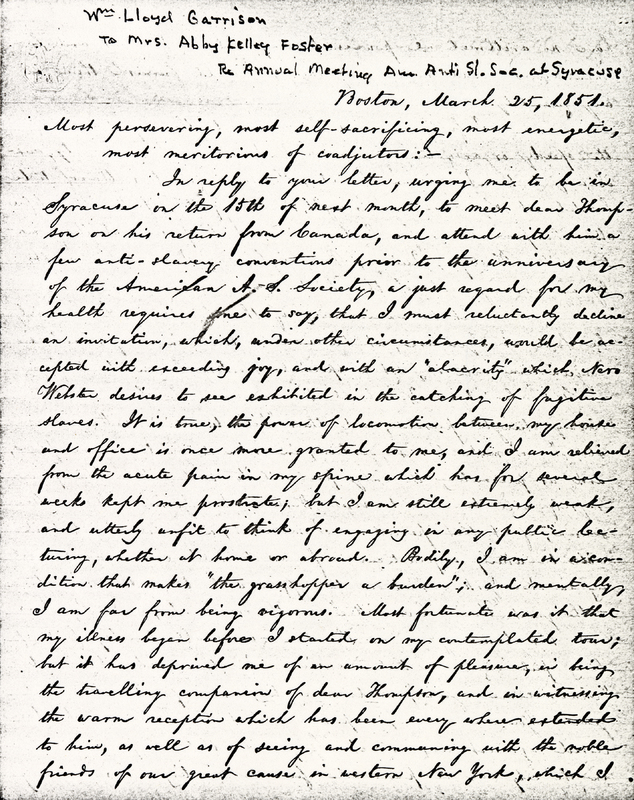Women and Abolition
Ashley Schefler
Women played a complex and important role in the antislavery movement. Women argued that, especially in light of the sexual abuse of enslaved women, their participation in the movement was a Christian duty and one fitting to a sex which many at the time defined by virtue and sensibility (Bogin and Yellin 5). They built on a long tradition of women’s benevolent societies—charity groups which addressed social and, occasionally, political issues (Robertson 3). While women’s involvement in abolition was initially restricted to the domestic sphere, over time, female activists became bolder and more controversial. Leaders like Maria W. Stewart, Lydia Maria Child, the Grimké sisters, and Lucretia Mott faced harsh censure for making “promiscuous” public speeches (Bogin and Yellin 3; Robertson 3). They formed their own antislavery societies which admitted women of all races and worked to raise money, publish abolitionist texts, and impact policy through petition-writing campaigns (Bogin and Yellin 2).
Many female abolitionists went on to fight for women’s rights and equality more broadly, leading to the Seneca Falls Convention for women’s rights in 1848 and the birth of the women’s rights movement in America. This legacy is complicated, however, by splits in the women’s and African American rights movements, and the push by many women’s suffrage supporters for the rights of white women only.
~~~~~
The Female Anti-Slavery Sewing Society Records
June 23, 1852 - November 1, 1854
Ashley Schefler
In 1852, a group of women in Philadelphia created a sewing society to “reliev[e] the sufferings [...] of our countrymen, who have [...] found a refuge in Canada.” Despite being an all-female society, the meeting locations are routinely referred to by the husband’s name, e.g. “At a meeting held at William Winslow’s.” After an adjournment of several months, the group decided to “donate the results of their labors to charitable purposes in general,” contrary to their original intention of sending the clothes to formerly enslaved people in Canada. The final meetings were dedicated to helping an orphanage, revealing ambiguity about the organization’s goals and motivations.
Letter to Abby Kelley Foster, March 25, 1851 from William Lloyd Garrison
Abby Kelley Foster Papers
Ashley Schefler
Abby Kelley Foster (1811-1887) was a Massachusetts Quaker who fought for abolition and women’s rights. The letters she received reveal much about Foster as a person and how much she was respected by other activists. Her correspondence with William Lloyd Garrison, founder of the abolitionist newspaper The Liberator, was particularly frequent. In one letter, Garrison supports Foster’s refusal to pay taxes in protest for women’s suffrage, which led the government to confiscate her property. In this letter, wherein he “reluctantly decline[s]” her “urging” invitation to a series of anti-slavery conventions, he addresses her as: “Most persevering, most self-sacrificing, most energetic, most meritorious of coadjutors.”

